Our Supporters


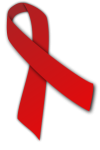
There are many ways that you can support our fight to end HIV and support individuals living with HIV. You can volunteer. You can give in-kind and monetary donations. And, you can keep the message about HIV alive in your community! If you would like to make a monetary or in-kind contribution to HIV Alliance, we have outlined below how this can be done. If you have any questions, please contact the Development Director at development@hivalliance.org. Thank you!

Planned giving is a wonderful way to make a difference in our community for the long-term. Include HIV Alliance in your will and you will not only receive tax benefits for your estate, but will also leave a legacy for years to come.
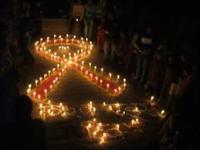
In-kind donations make a difference. Every year we receive thousands of dollars in in-kind donations. From condoms to office supplies to items for a fundraising auction, your support makes a difference. Every dollar that we save through your in-kind donation can be spent on something a client needs!
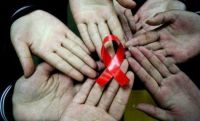
If you are a local business or a church, Corporate Sponsorship is for you. Join the dedicated group of businesses and religious organizations that care about our community’s health and want to be part of the solution to HIV/AIDS. With more partners who join our team, we can more powerfully protect future generations from this disease. Help us move to a future free of HIV/AIDS.
With a gift as little as $100, your business can support HIV Alliance while gaining more visibility and creating customer loyalty by associating itself with an important cause. Sponsorship packages are available at all levels.
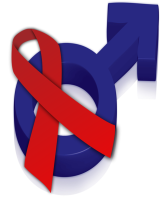
Guys Like Us is a group for HIV positive men. Groups are available in Lane, Douglas, and Marion Counties. It is a great opportunity to meet other HIV+ guys who are facing some of the same issues. Dinner is provided. Incentives will be given. The group is facilitated by our Prevention Manager Paul Homan. Paul Homan is a gay man living with HIV. He was first diagnosed in 2003. This is a confidential group. Please fill out the form below to learn about upcoming groups.
[contact-form][contact-field label=’Name’ type=’name’ required=’1’/][contact-field label=’Email’ type=’email’ required=’1’/][contact-field label=’Comment’ type=’textarea’ required=’1’/][/contact-form]Guys Like Us is a group for HIV positive men. Groups are available in Lane, Douglas, and Marion Counties. It is a great opportunity to meet other HIV+ guys who are facing some of the same issues. Dinner is provided. Incentives will be given. The group is facilitated by our Prevention Manager Paul Homan. Paul Homan is a gay man living with HIV. He was first diagnosed in 2003. This is a confidential group. Please fill out the form below to learn about upcoming groups.
[contact-form][contact-field label=’Name’ type=’name’ required=’1’/][contact-field label=’Email’ type=’email’ required=’1’/][contact-field label=’Comment’ type=’textarea’ required=’1’/][/contact-form]
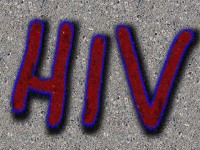
HIV (Human Immunodeficiency Virus) is a virus that attacks the human immune system and can lead to a diagnosis of AIDS (Acquired Immune Deficiency Syndrome). Every person with an AIDS diagnosis has HIV, but not everyone with HIV has AIDS.
HIV attacks specific immune system cells — the T-cells or CD4 cells. These cells are critical to fighting off new infections and diseases. HIV invades these cells and uses them to make more copies of itself, and then destroys them. Over time, HIV destroys so many cells that the body is not able to fight off diseases and infections. When this occurs, a person is given an AIDS diagnosis.
There is no cure for HIV. But, this disease is preventable. By
However, with proper treatment with “antiretroviral therapy” many people living with HIV can live longer and healthier lives.
HIV (Human Immunodeficiency Virus) is transmitted only through four fluids:
Transmission of HIV can only occur when an HIV-infected body fluid enters the body through a port of entry (examples: vagina, anus, veins, mouth, direct access to tissue).
You cannot get HIV through touching, kissing, sharing food or beverages, or being friends with someone who is HIV positive.
Safer sex practices are ways to reduce the risk of becoming HIV positive. These include using barrier methods, knowing the HIV status of your partner, minimizing higher risk sexual and/or drug use behaviors, and getting tested for HIV and other STIs.
Safer injection practices are ways to reduce the risk of becoming HIV positive through needles. These include using clean needles and works every time you inject and getting tested for HIV and Hepatitis C.
HIV (Human Immunodeficiency Virus) is transmitted only through four fluids:
Transmission of HIV can only occur when an HIV-infected body fluid enters the body through a port of entry (examples: vagina, anus, veins, mouth, direct access to tissue).
You cannot get HIV through touching, kissing, sharing food or beverages, or being friends with someone who is HIV positive.
Safer sex practices are ways to reduce the risk of becoming HIV positive. These include using barrier methods, knowing the HIV status of your partner, minimizing higher risk sexual and/or drug use behaviors, and getting tested for HIV and other STIs.
Safer injection practices are ways to reduce the risk of becoming HIV positive through needles. These include using clean needles and works every time you inject and getting tested for HIV and Hepatitis C.

The Needle Exchange program aims to protect public safety and community health by reducing the spread of HIV and Hepatitis C due to injection drug use. The program works to keep people who inject drugs, their partners, and their children free from HIV, so that they do not have the added burden of living with HIV while in their addiction or recovery of drug use.
We look to support the health of people who inject drugs, as well as their families and sexual partners. Many find that quitting drugs improves their lives, BUT, this does not work for everyone, and it is an individual decision. We do not push people to get into treatment. We help those who choose to do so by giving referrals, advocacy, and counseling on the issue. All services are confidential.
Monday:
6 – 7:30 p.m. at the dead end of Blair Street, Eugene, OR. Services available: Syringe Exchange, Wound and Abscess Care*
Tuesday:
11 – 1 p.m. at HIV Alliance, 1966 Garden Way, Eugene, OR 97403. Services available: Syringe Exchange, HIV Testing and Counseling*
Wednesday:
6 – 7:30 p.m. at the dead end of Blair Street, Eugene, OR. Services available: Syringe Exchange
Thursday:
6 – 7:30 p.m. under the bridge across the river from Day Island Park in Glenwood. Services available: Syringe Exchange, Wound and Abscess Care*
Friday:
1 – 5 p.m. at HIV Alliance, 1966 Garden Way, Eugene, OR 97403. Services available: Syringe Exchange, HIV Testing and Counseling*
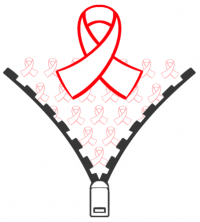
Follow us on Unzipped Alliance. This blog site is updated bi-weekly in six categories: HIV Exposed, Community Partners, Relationships, Safer Sex, Night Stand, and Trans talk. We also have videos and other useful information about HIV and safe sex practices. You can ask a Sexpert right on our site and get a fast response. So ask away! Your information is confidential and private.
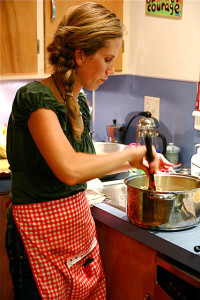
This four week class for clients is focused on delicious cooking and healthy eating. Participants are provided with a healthy meal and bag of groceries to prepare healthy meals at home.
Visit the Client Social Events Calendar for more information including times and locations by county.